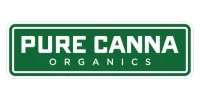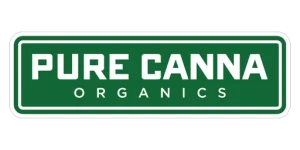Can Truck Drivers Smoke CBD?
The CBD industry is booming, and many people use it to manage stress, pain, and sleep problems. But for commercial truck drivers, the rules around CBD are complex and potentially risky.
If you’re a CDL (Commercial Driver’s License) holder, you may be wondering:
“Can truck drivers smoke CBD legally and safely?”
The honest answer is:
Legally, CBD is not banned for truck drivers—but using it carries serious risks due to DOT drug testing policies and product inconsistencies.
In this blog, we’ll break down the facts using EEAT principles (Experience, Expertise, Authoritativeness, and Trustworthiness) so you can make an informed decision.
What Is CBD?
CBD (Cannabidiol) is a non-intoxicating compound found in hemp. Unlike THC, it does not produce a high. Many people use CBD to help with:
- Anxiety and stress
- Muscle recovery
- Sleep improvement
- Chronic pain relief
CBD is legal at the federal level in the U.S. if it contains less than 0.3% THC, but this doesn’t automatically mean it’s risk-free for CDL drivers.
Can Truck Drivers Smoke CBD? Understanding the DOT Rules
Department of Transportation (DOT) Policy
The DOT regulates drug and alcohol testing for safety-sensitive transportation workers, including:
- Truck drivers
- Bus drivers
- Airline pilots
- Train conductors
CBD and DOT Drug Testing
Even though CBD is legal, the DOT tests for THC, not CBD. Here’s the problem:
- Some CBD products contain trace amounts of THC (even “THC-free” products may have contamination)
- Smoking CBD flower increases the risk of THC exposure, because it often contains small THC levels, even if labeled “hemp”
- DOT drug tests cannot differentiate between THC from CBD or marijuana
If you test positive for THC, you could face:
- Immediate removal from duty
- Loss of your CDL job
- Mandatory Substance Abuse Professional (SAP) evaluation
- Possible career-ending consequences
The Risks of Smoking CBD as a Truck Driver
| Risk | Why It Matters |
|---|---|
| Failed drug test | Even legal CBD can lead to a positive THC test |
| Product mislabeling | Not all CBD products are accurately labeled |
| DOT zero-tolerance policy | DOT does not accept “I used CBD” as an excuse for THC in your system |
| Legal complications | State and federal cannabis laws differ, making things confusing |
Why Smoking CBD Is Especially Risky for CDL Drivers
Smoking CBD flower is one of the riskiest ways to consume CBD for truck drivers because:
- CBD flower may contain up to 0.3% THC, enough to trigger a positive test
- The method of consumption makes it harder to measure dosage
- Inhaling CBD may increase THC absorption rates, depending on the strain
Are There CBD Products Safe for Truck Drivers?
Technically, there are CBD isolates or broad-spectrum CBD products that are THC-free, but:
- No CBD product is 100% guaranteed to be THC-free unless third-party tested
- Even THC-free products can be cross-contaminated during manufacturing
- DOT does not protect drivers from positive THC results, regardless of how the THC entered your system
What Do Industry Experts Recommend?
CDL Safety Advisors and Medical Review Officers (MROs) advise:
- Avoid all CBD products if you’re in a safety-sensitive role
- Do not smoke CBD flower under any circumstances as a CDL driver
- Stick to approved medical treatments that won’t interfere with DOT testing
Legal Status of CBD for Truck Drivers
| Factor | Can CDL Drivers Use CBD? |
|---|---|
| Federal legality of CBD | Yes (if under 0.3% THC) |
| DOT drug testing policy | No tolerance for THC |
| State laws | Vary, but federal law prevails for CDL drivers |
| Employer policies | Most trucking companies prohibit CBD use due to drug test risks |
Conclusion: Can Truck Drivers Smoke CBD?
While CBD is legal federally, CDL drivers should avoid smoking CBD flower or using any CBD products because of:
- DOT’s strict drug testing policies
- The risk of THC contamination
- Potential career-ending consequences if you fail a drug test
Final Advice:
If you hold a commercial driver’s license, it’s safest to avoid CBD altogether to protect your career and comply with federal safety guidelines.

